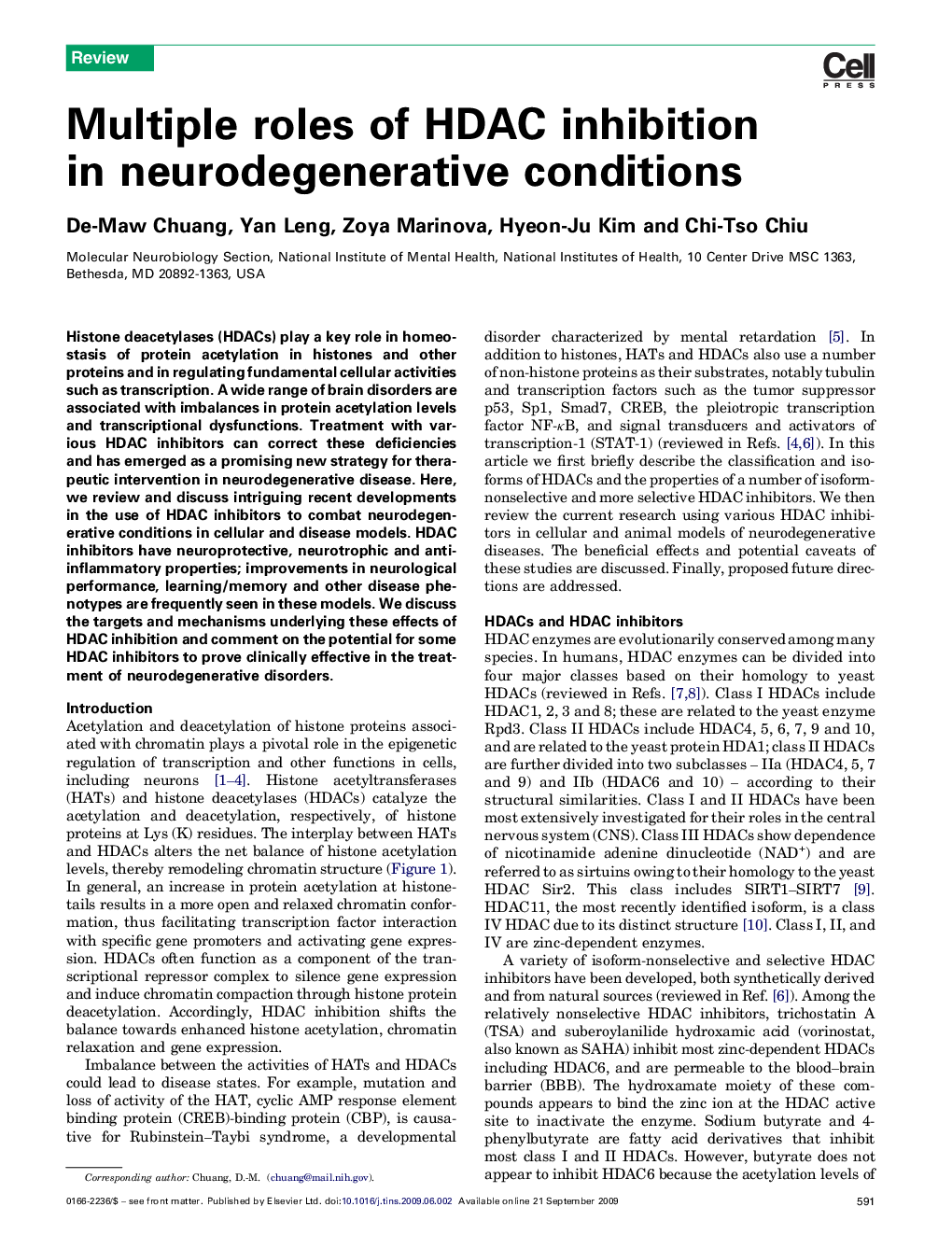| Article ID | Journal | Published Year | Pages | File Type |
|---|---|---|---|---|
| 4354606 | Trends in Neurosciences | 2009 | 11 Pages |
Histone deacetylases (HDACs) play a key role in homeostasis of protein acetylation in histones and other proteins and in regulating fundamental cellular activities such as transcription. A wide range of brain disorders are associated with imbalances in protein acetylation levels and transcriptional dysfunctions. Treatment with various HDAC inhibitors can correct these deficiencies and has emerged as a promising new strategy for therapeutic intervention in neurodegenerative disease. Here, we review and discuss intriguing recent developments in the use of HDAC inhibitors to combat neurodegenerative conditions in cellular and disease models. HDAC inhibitors have neuroprotective, neurotrophic and anti-inflammatory properties; improvements in neurological performance, learning/memory and other disease phenotypes are frequently seen in these models. We discuss the targets and mechanisms underlying these effects of HDAC inhibition and comment on the potential for some HDAC inhibitors to prove clinically effective in the treatment of neurodegenerative disorders.
